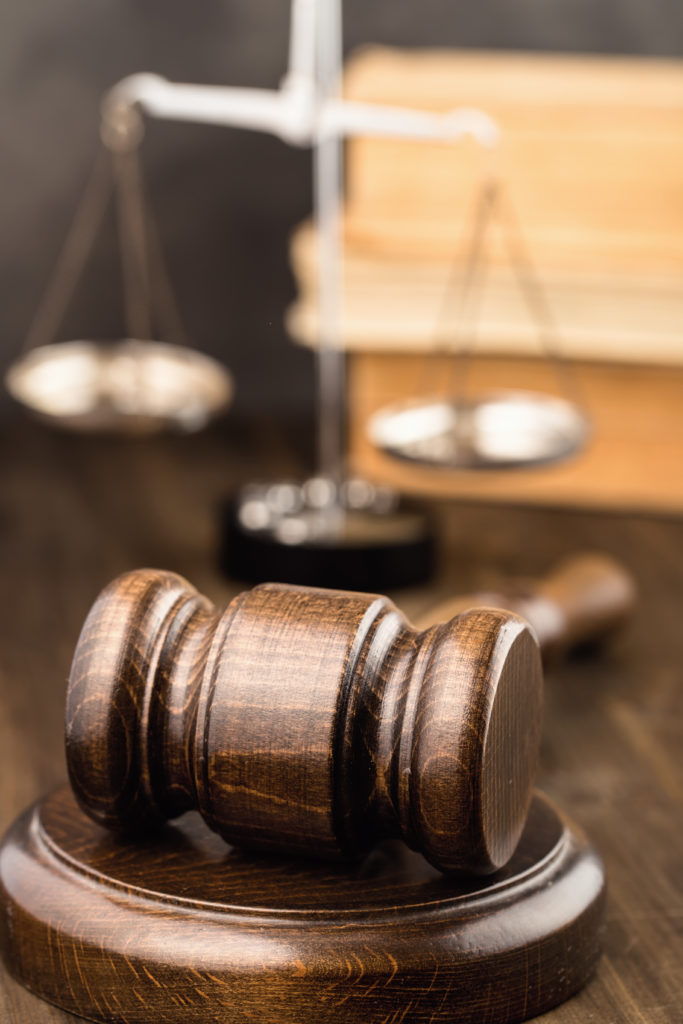Entrepreneurs or other trademark owners seeking trademark registation in the United States Patent and Trademark Office will sometimes receive a Notice of Opposition to their federal trademark application or a Petition to Cancel their federal trademark registration, both which indicate that a formal proceeding has commenced before the Trademark Trial and Appeal Board (“TTAB” or the “Board”) by a third-party and the registration of the brand owner’s trademark is in legal jeopardy. After a Notice of Opposition or Petition for Cancellation is filed, a respondent (defendant) then has forty (40) calendar days to file a formal answer in the TTAB. A missed answer deadline, or otherwise failure to respond to the initial complaint will result in a default judgment under Federal Trademark Law in the United States.
Default Judgment Rules in Trademark Trial and Appeal Board (TTAB) After Missed Answer Deadline

If the defendant does not take action by the applicable deadline, the Trademark Trial and Appeal Board Manual of Procedure (TBMP) provides that it is within the Board’s discretion to issue a Notice of Default against the respondent. According to TBMP 312.01:
“If a defendant fails to file an answer to a complaint during the time allowed therefor, the Board may issue a notice of default. The notice states that neither an answer nor any extension of time to answer has been filed; that notice of default under Fed. R. Civ. P. 55(a) is entered; and that defendant is allowed 30 days from the mailing date of the notice in which to show cause why default judgment should not be entered against it. If the defendant fails to file a response to the notice, or files a response that does not show good cause, default judgment may be entered against it.”
Therefore, upon receiving a Notice of Default from the Board, a respondent must file a Motion to Set Aside within thirty (30) calendar days. In order to successfully persuade the Board to set aside the Notice of Default, and thereby avoid entry of a default judgment against it, a respondent’s Motion to Set Aside must include a “satisfactory showing of good cause.” TBMP 312.02
“Good cause” as to why default judgment should not be entered against a respondent for failure to file a timely answer to a Notice of Opposition or Petition to Cancel is usually found when the defendant shows that (1) the delay in filing an answer was not the result of willful conduct or gross neglect on the part of the respondent, (2) the opposer or petitioner will not be substantially prejudiced by the delay, and (3) the respondent has a meritorious defense to the action. When determining whether good cause has been shown, the Board will consider all evidence offered by the parties relative to these three elements. It is well-settled by Board precedent that “delay alone is not a sufficient basis for establishing prejudice.” Additionally, the submission of an answer is typically deemed satisfactory to show that a respondent has a meritorious defense to the action. Notwithstanding these factors, the decision regarding default judgment rests within the “sound discretion” of the Board and there is no guarantee that they will find in favor the party moving to set aside a notice of default.
“Good cause” as to why default judgment should not be entered against a respondent for failure to file a timely answer to a Notice of Opposition or Petition to Cancel is usually found when the defendant shows that (1) the delay in filing an answer was not the result of willful conduct or gross neglect on the part of the respondent, (2) the opposer or petitioner will not be substantially prejudiced by the delay, and (3) the respondent has a meritorious defense to the action. When determining whether good cause has been shown, the Board will consider all evidence offered by the parties relative to these three elements. It is well-settled by Board precedent that “delay alone is not a sufficient basis for establishing prejudice.” Additionally, the submission of an answer is typically deemed satisfactory to show that a respondent has a meritorious defense to the action. Notwithstanding these factors, the decision regarding default judgment rests within the “sound discretion” of the Board and there is no guarantee that they will find in favor the party moving to set aside a notice of default.

Deadlines in the USPTO can be unforgiving and timing often proves essential. High-stakes trademark litigation can sometimes be decided on a procedural technicality, such as default judgment, leading to the potential forfeiture of a party’s valuable trademark rights. To avoid this type of adverse outcome, entrepreneurs and trademark owners that have become party to a trademark opposition or petition for cancellation in the TTAB are wise to consult with an experienced trademark attorney that has experience with the Trademark Rules of Practice, and resolving trademark disputes pragmatically and favorably for brand owners.

